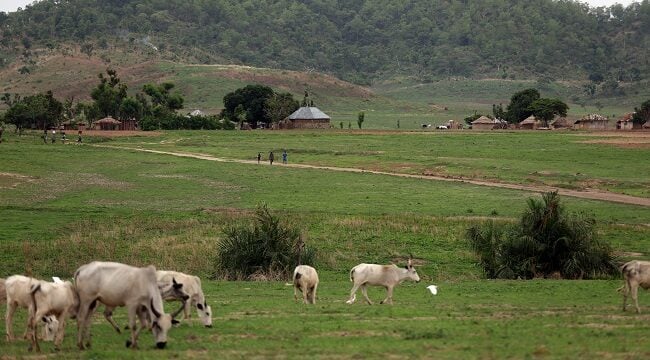Farmers-herders clashes in Nigeria remain one issue that has refused to go away despite the government’s and relevant stakeholders’ attempts to address the challenge. The history of farmers-herders clashes is traceable even to precolonial times.
However, before the advent of the clashes, there existed a symbiotic relationship between farmers and herders in the sense that farmers depend on the waste generated by cattle to improve farming outcomes and herders, in turn, rely on farm waste products to feed their cattle. It was indeed a regime characterised by complementary activities that were mutually beneficial and supported increased productivity on both sides.
It has been argued in several quarters that factors such as changes in pastoral and farming systems, lack of social structure to institute cooperation, the decline of water and pasture, and climate change contributed to the tension among farmers and herders. There is also a history of mutual suspicion among ethnic groups in the country. For example, the National Grazing Routes and Reserve Bill 2012 and the National Grazing Reserve Bill 2016, which sought to establish new grazing reserves and routes in each State of the Federation, were unsuccessful.
In 2019, a bill to establish Rural Grazing Area (RUGA) settlements all over the country in a bid to check the conflicts and improve agricultural productivity also didn’t see the light of day due to widespread criticisms from several parts of the country, with insinuations that it was a ploy to “Fulanise” the country.
This newspaper thinks that, regardless of the suspicion around ranching by various interests in the country, it remains a solution to the frequent farmers-herders conflict in the country. This position was recently canvassed by the Chief of Defence Staff, General Christopher Musa, who stated that one of the major causes of insecurity in the country is farmers-herders clashes. General Musa was apt in his position that we must confine animals in ranches not only to end incessant clashes between farmers and herders in the country, but also to improve the yielding capacity of the animals in terms of milk production and the quality of their produce.
The recent “Bill for an Act to Provide for the Establishment, Development, and Management of Ranches in the 774 Local Government Areas and the Federal Capital Territory, to Promote Modern Livestock Farming, Curb Open Grazing, Enhance Food Security, and for Related Matters” sponsored by Senator Ned Nwoko (APC-Delta North) is indeed a welcome development. Going by the provisions of the bill, it proposes, among others, the establishment of a dedicated “Ranch Management and Development Agency” to oversee regulatory compliance, enforce sustainable practices, and resolve disputes among stakeholders.
As a newspaper, we align with this position given that it will promote modern livestock farming through dedicated and legally recognised ranches, facilitate cooperation between federal, state, and local governments, and protect the rights of individuals and communities in land acquisition for ranching purposes.
We also note that the bill’s provision aligns with the objectives of the newly established Federal Ministry of Livestock Development, which aims to enhance livestock production and food security, bolster economic growth, and address key challenges such as poor infrastructure and conflicts between farmers and herders.
It is pertinent to point out that the various steps taken by the government and relevant stakeholders represent a positive signal towards addressing the farmers-herders conflict that has disrupted agricultural production and resulted in deaths and displacements in several communities across the country.
It is also a sad reminder that rural households are hard-hit by frequent farmers-herders clashes, given that they are critical contributors and participants in the agricultural value chain in Nigeria. This is also in recognition of the fact that about 44.97 per cent of our population resides in rural areas.
It is thus incumbent on the relevant stakeholders to embrace the various proposals on ranching as a solution to farmers-herders clashes. The role of religious and traditional leaders in this advocacy cannot be overemphasised. This is necessary to reduce the religious and ethnic dimensions that have coloured farmers-herders clashes.
It can also be argued that the failure of previous attempts to address this socioeconomic challenge can be attributed to these factors. There is no doubt that previous attempts had their pros and cons, but the manner in which they were tagged along religious and ethnic lines was the straw that broke the camel’s back, and why we are still having the conversation on how to resolve farmers-herders clashes.
There were also political sentiments that were propagated not for their merits, but as a result of mutual suspicion among politicians who spread contrary narratives on the efforts at resolving the conflict and the deep-rooted desire to score cheap political points in their constituencies, and to sell their political merchandise to their constituents.
From this perspective, we advocate that politicians tone down their misgivings about ranching as a solution to farmers-herders clashes, as the importance of ranching in addressing the farmers-herders clashes in Nigeria cannot be overemphasised.





